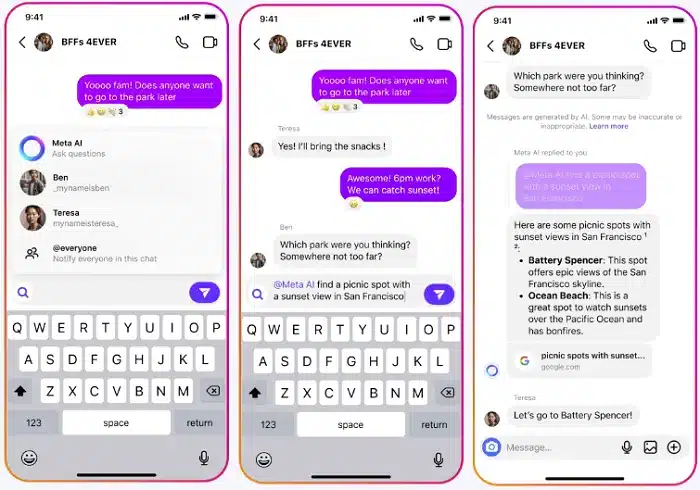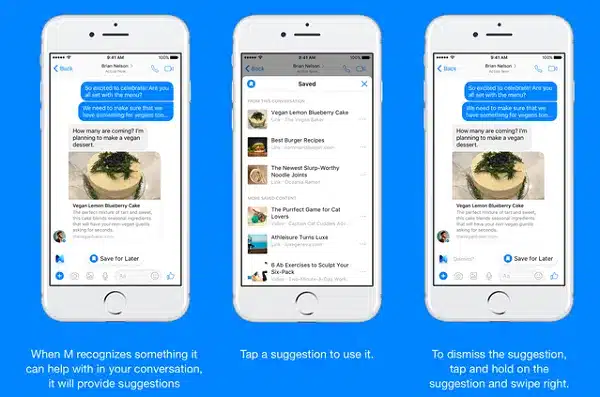Social media giant Meta is shaking things up with the launch of “Meta AI,” an AI assistant embedded directly within Facebook, Instagram, WhatsApp, and Messenger. This move signifies Meta’s aggressive push into the generative AI space, directly challenging established players like OpenAI. But will users embrace this new feature, or is it another case of solution searching for a problem? Social Media Today’s Andrew Hutchinson dives deep into the details and potential roadblocks for Meta AI.
Introducing Meta AI: Your AI Companion Within Your Favorite Apps
Powered by Meta’s powerful Llama 3 engine, Meta AI boasts itself as a next-generation AI assistant readily available within your most-used Meta apps. Gone are the days of navigating separate apps and websites. With Meta AI, you can ask conversational questions directly within the app, get relevant information through web searches, and even generate creative visuals – all at your fingertips.

A Déjà Vu? Meta’s Second Attempt at an In-Stream Assistant
This isn’t Meta’s first foray into the world of in-stream AI assistants. Back in 2017, they launched “M,” which offered functionalities quite similar to Meta AI. However, M failed to gain significant traction with users, ultimately leading to its demise in 2018.

Meta’s Optimism and Power Play
Despite the skepticism, Meta believes its superior Llama 3 technology will make Meta AI a valuable tool. The company highlights features like real-time image generation and animation, aiming to surpass competitors like OpenAI’s ChatGPT.
Beyond Convenience: The Social Impact of AI in Social Media
The article delves into the potential downsides of integrating generative AI directly into social media platforms. While acknowledging the impressive capabilities of these tools, Hutchinson questions whether they truly enhance the core purpose of social media – fostering genuine social connection. He argues that an overreliance on AI assistants within social apps might even push users further away from authentic interaction.
Zuckerberg’s AI Vision and User Preference
Meta CEO Mark Zuckerberg’s strong interest in AI is seen as a driving force behind this new feature. However, this raises concerns about user preference being potentially overridden by the company’s agenda. Will users truly find Meta AI valuable, or is it simply a case of Meta keeping pace with the AI race?
Limited Launch: A Measured Approach
For now, Meta AI is being rolled out in a limited number of countries, including the US, Canada, and Australia. This measured approach suggests Meta might be gauging user response before a wider global launch.
The Verdict: A Wait-and-See Approach
Only time will tell if Meta AI can overcome the challenges faced by its predecessor, M. While Meta boasts superior technology and a wider range of functionalities, the real question lies in user adoption. Will users find Meta AI a valuable addition to their social media experience, or will it become another underutilized feature? Additionally, the potential drawbacks of increased reliance on AI within social media raise questions about the future of authentic social connection on these platforms. Meta AI’s success hinges on addressing these concerns and providing a user experience that seamlessly integrates with, rather than replaces, genuine social interaction.
Source: Marketing Dive





